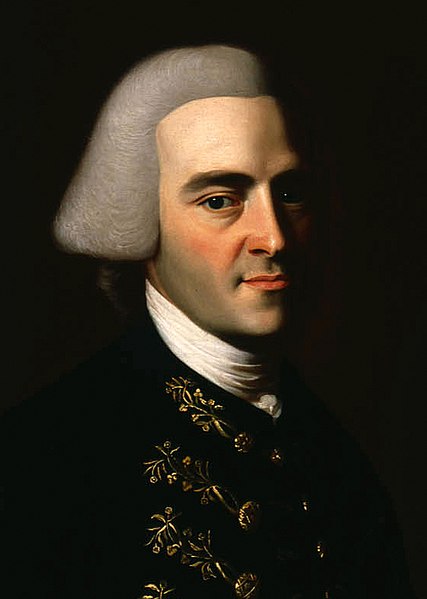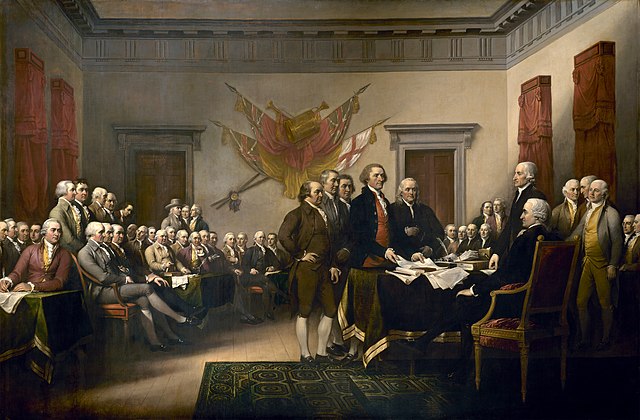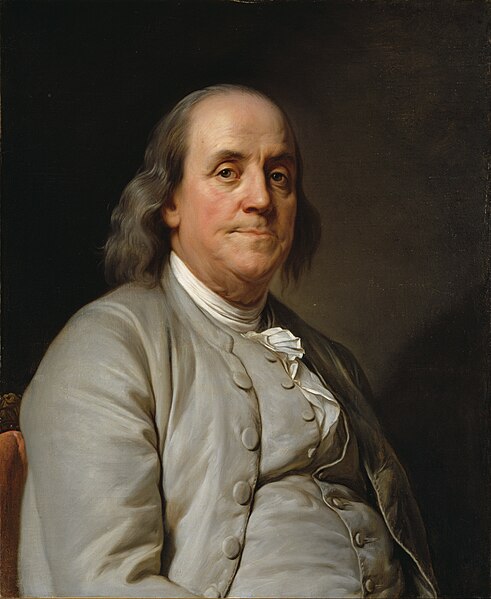John Hancock was an American Founding Father, merchant, statesman, and prominent Patriot of the American Revolution. He served as president of the Second Continental Congress and was the first and third governor of the Commonwealth of Massachusetts. He is remembered for his large and stylish signature on the United States Declaration of Independence, so much so that in the United States, John Hancock or Hancock has become a colloquialism for a person's signature. He also signed the Articles of Confederation, and used his influence to ensure that Massachusetts ratified the United States Constitution in 1788.
Portrait by John Singleton Copley, c. 1770–1772
Around 1772, Hancock commissioned John Singleton Copley to paint this portrait of Samuel Adams, Hancock's early political mentor.
Portrait of Hancock by John Singleton Copley, c. 1765
Paul Revere's 1768 engraving of British troops arriving in Boston was reprinted throughout the colonies.
Founding Fathers of the United States
The Founding Fathers of the United States, commonly referred to as the Founding Fathers, were a group of late-18th-century American revolutionary leaders who united the Thirteen Colonies, oversaw the War of Independence from Great Britain, established the United States of America, and crafted a framework of government for the new nation.
The Committee of Five (Adams, Livingston, Sherman, Jefferson, and Franklin) present their draft of the Declaration of Independence to the Second Continental Congress in Philadelphia on June 28, 1776, as depicted in John Trumbull's 1819 portrait
George Washington, a key Founding Father, was commanding general of the Continental Army during the Revolutionary War and a Revolutionary hero, presided over the Constitutional Convention and became the nation's first president in April 1789.
Thomas Jefferson, a key Founding Father, was the primary author of the Declaration of Independence, which Pulitzer Prize-winning historian Joseph Ellis says contains "the most potent and consequential words in American history".
Benjamin FranklinEarly advocate of colonial unity, was a foundational figure in defining the US ethos and exemplifying the emerging nation's ideals.








